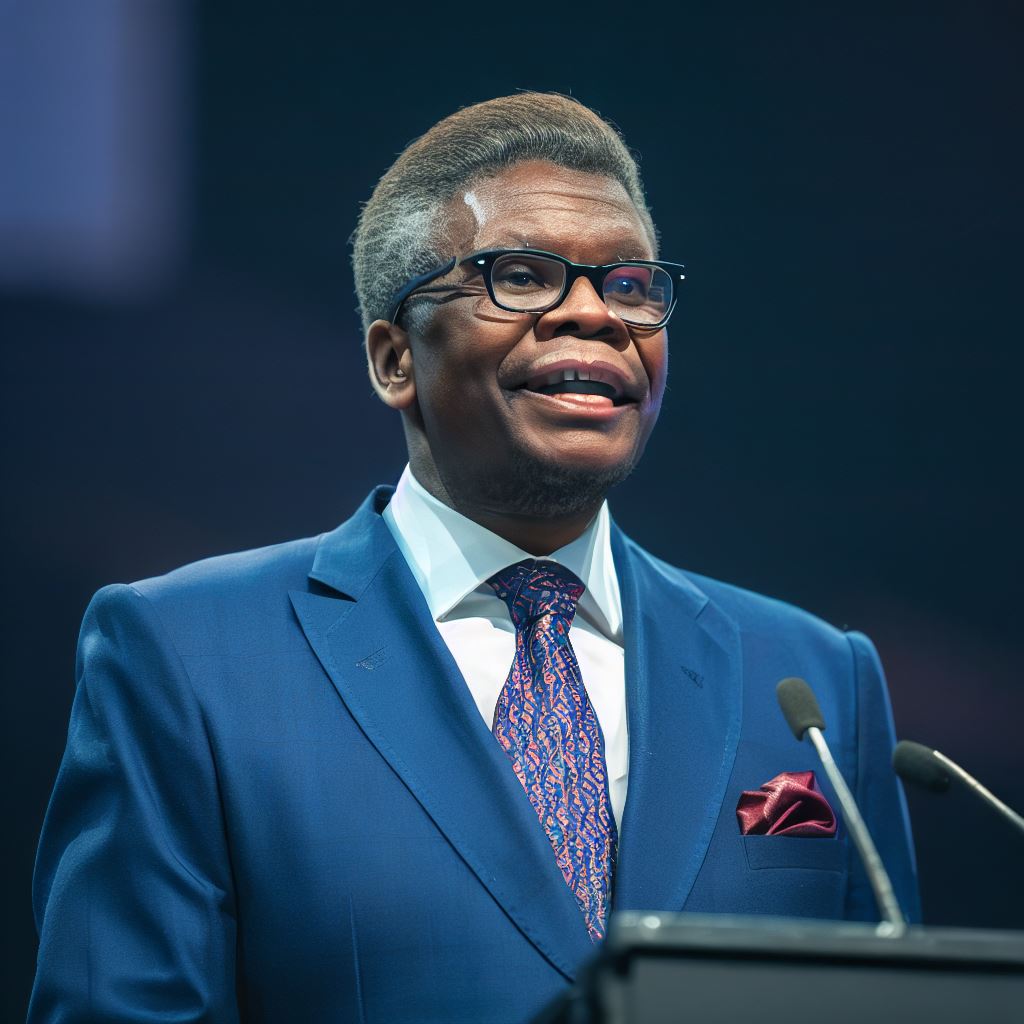Introduction
A pastor in Nigeria serves as a spiritual leader, guiding and shepherding their congregation. They face numerous challenges and triumphs in their role. This blog post aims to explore these experiences in depth.
Nigeria, a country with a diverse religious landscape, sees pastors playing a pivotal role in the lives of its people.
These spiritual leaders are responsible for providing guidance, counseling, and support to their congregation.
However, being a pastor in Nigeria is not without its challenges. They often face limited resources, financial constraints, and societal pressures.
Additionally, Nigeria’s political climate and issues of corruption can also affect their ministry. Despite these challenges, pastors in Nigeria also experience triumphs.
They have the power to make a positive impact on individuals and communities, transforming lives through spiritual teachings and acts of charity.
They witness personal growth and spiritual awakening in their congregants, which brings them a sense of fulfillment and joy.
The purpose of this blog post is to shed light on the often overlooked life of a pastor in Nigeria.
By sharing their challenges and triumphs, we hope to foster a deeper understanding of their role and the impact they have on society.
Through their stories, we can appreciate the dedication, resilience, and faith of these pastors as they navigate the complexities of modern Nigeria.
Stay tuned for the upcoming chapters, as we delve into the specific challenges and triumphs experienced by pastors in Nigeria.
Read: Becoming a Pastor in Nigeria: An In-Depth Career Guide
Challenges Faced by Pastors in Modern Nigeria
Lack of financial resources
In modern Nigeria, pastors face numerous challenges that can greatly impact their lives and work. One of the major challenges is the lack of financial resources.
Pastors often struggle with maintaining churches and supporting their families due to financial difficulties.
They face limited access to funding for ministry activities, which hampers their ability to effectively serve their congregations.
Religious conflicts and persecution
Another significant challenge in Nigeria is religious conflicts and persecution.
The country is home to various religious sects, and this diversity often leads to tensions and violence. Pastors are not immune to these conflicts and can become targets or victims themselves.
They must navigate through this hostile environment while continuing their ministry.
Social expectations and pressures
Social expectations and pressures also pose challenges to pastors in Nigeria. They must strike a delicate balance between their personal lives and ministry responsibilities.
The demands on their time and energy can be overwhelming, and they often find themselves torn between meeting societal expectations and fulfilling their divine calling.
Moreover, pastors are constantly scrutinized for their behavior and lifestyle, putting additional pressure on them.
Government regulations and interference
Government regulations and interference further complicate the lives of pastors in Nigeria.
There are restrictions on religious activities and gatherings, making it challenging for pastors to freely practice and share their faith.
Additionally, the influence of politics on pastors’ work can hinder their ability to minister effectively.
They sometimes find themselves caught in the midst of political power struggles, leading to a compromised ministry.
Lack of proper theological education
The lack of proper theological education is yet another obstacle faced by pastors in Nigeria.
Many do not have access to quality theological education, which is essential for developing a solid foundation for effective ministry.
Without this education, pastors may struggle to interpret and teach the Scriptures accurately, hindering their ability to lead and guide their congregations.
In essence, pastors in modern Nigeria encounter various challenges that can significantly impact their lives and ministries.
These challenges include the lack of financial resources, religious conflicts and persecution, social expectations and pressures, government regulations and interference, and the lack of proper theological education.
Despite these challenges, pastors continue to serve their communities and navigate through these difficulties, relying on their faith and the support of their congregations.
Read: Women in the Pastoral Profession: Nigeria’s Evolving Scene
Triumphs Experienced by Pastors in Modern Nigeria
In modern Nigeria, pastors have experienced numerous triumphs amidst the challenges they face.
These triumphs highlight the positive impact they make in their communities, the growth and expansion of churches, their personal spiritual transformation, and their role as role models and mentors.
Impactful community engagement
One significant triumph experienced by pastors is their impactful community engagement.
They act as catalysts for positive change in society, using their influence to address social issues and improve the lives of their congregants and the wider community.
Through their leadership, pastors have initiated successful community projects that address poverty, education, healthcare, and other pressing needs.
Growth and expansion of churches
Furthermore, pastors in modern Nigeria have witnessed the growth and expansion of their churches.
They have seen an increase in membership and their outreach efforts, as more individuals are drawn to their ministries.
This growth has led to the establishment of new branches and ministries, allowing pastors to reach a larger audience and touch more lives with their message of hope and faith.
Personal spiritual transformation
Apart from the external triumphs, pastors also experience personal spiritual transformation.
They share testimonies of their own spiritual growth, having overcome various challenges and obstacles along their journey.
These testimonies inspire their congregants and serve as a reminder of the power of God’s grace and mercy.
Pastors also experience divine miracles and answered prayers, reinforcing their faith and strengthening their relationship with God.
Role models and mentors
Pastors in modern Nigeria also serve as role models and mentors to others. They demonstrate exemplary lifestyles and inspire their congregants through their teachings and actions.
Many influential pastors have emerged, leading by example and motivating others to live a life of purpose and faith.
Additionally, experienced pastors have developed mentorship programs to guide and support younger pastors, helping them navigate the unique challenges of ministry and fostering their growth and development.
In fact, despite the challenges they face, pastors in modern Nigeria have experienced significant triumphs, which highlight their positive impact in society.
They engage with their communities, initiate meaningful projects, witness the growth and expansion of their churches, undergo personal spiritual transformation, and serve as role models and mentors.
These triumphs not only uplift pastors but also inspire others and contribute to the overall development and progress of society.
Read: The Theological Education Pathway for Pastors in Nigeria

Strategies for Overcoming Challenges
In the face of numerous challenges, pastors in modern Nigeria have developed various strategies to overcome these obstacles and thrive in their roles as spiritual leaders.
This section explores the key strategies used by pastors to navigate the difficulties they encounter.
Building strong support systems
Pastors recognize the importance of having a strong support system in their lives. To achieve this, they create networks of pastors who can provide mutual encouragement and assistance.
By sharing their experiences and offering advice, pastors can find solace in the company of others who understand their unique challenges.
Additionally, establishing mentorship programs for emerging pastors allows them to learn from more experienced leaders, equipping them with the tools they need to overcome obstacles.
Emphasizing financial literacy and sustainability
Financial challenges are prevalent for many pastors in Nigeria. To address this, pastors place a strong emphasis on financial literacy and sustainability.
Providing training on financial management and fundraising strategies equips pastors with the necessary skills to effectively manage their finances and secure funding for their ministries.
Encouraging pastors to diversify their income sources also plays a crucial role in ensuring financial stability and reducing reliance on a single revenue stream.
Collaborating with other religious leaders
Acknowledging the significance of unity and cooperation, pastors actively seek to collaborate with other religious leaders.
Promoting interfaith dialogue and understanding fosters tolerance and harmony among different religious groups.
By engaging in joint efforts to address social issues and conflicts, pastors can contribute to the overall well-being of their communities, emphasizing the shared values that unite people of different faiths.
Advocating for better policies and regulations
To ensure the rights and freedoms of pastors, it is essential to advocate for better policies and regulations.
Pastors engage in peaceful activism to protect religious freedom, raising awareness about the importance of maintaining a conducive environment for practicing and sharing their faith.
They also actively participate in legal and policy initiatives to promote pastors’ rights, working towards the creation of fair and just regulations that support their role as spiritual leaders.
In review, pastors in modern Nigeria face numerous challenges in their lives and ministries.
However, by employing strategies such as building strong support systems, emphasizing financial literacy and sustainability, collaborating with other religious leaders, and advocating for better policies and regulations, pastors can overcome these obstacles and achieve triumph in their pastoral journey.
These strategies not only empower pastors but also contribute to the growth and prosperity of the communities they serve.
Read: Roles and Responsibilities of Pastors in Nigeria Today
Conclusion
Pastors in modern Nigeria face numerous challenges while also experiencing triumphs in their lives and ministry.
They often encounter religious intolerance, financial difficulties, and societal pressures. However, despite these hurdles, pastors find encouragement and inspiration to persevere in their calling.
It is important for pastors to remember that their role is crucial in society. They serve as spiritual leaders, guiding and nurturing their congregations.
Through their dedicated efforts, they support individuals and families in times of joy and sorrow, helping them find solace and hope.
Therefore, pastors should draw strength from their own triumphs and the positive impact they make in the lives of others.
They should remain steadfast in their faith and continue to serve with passion and conviction, even in the face of challenges.
Pastors in modern Nigeria face challenges, but they also experience triumphs. They should be encouraged and inspired to persevere in their calling, knowing that their role is vital in society.




